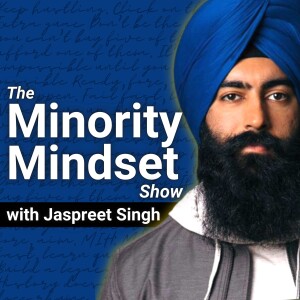

The Money Advantage Podcast
https://themoneyadvantage.com/feed/podcastEpisode List

SLAT vs ILIT for High Net Worth Estate Planning: Which One Protects Your Legacy Best?
The Question That Changed Everything SLAT vs ILIT for High Net Worth Estate Planning isn't just a legal distinction—it's a strategic decision that could determine how well your wealth serves your family, both now and for generations to come. https://www.youtube.com/live/CzyssnZbzD0 We were deep into a conversation with Andrew Howell, one of the foremost estate planning attorneys in the country, when he casually dropped a statement that made us pause: "I haven’t drafted a new ILIT in over a decade." Wait… what? For those of us in the world of estate strategy, that kind of remark is the equivalent of a mic drop. And that’s when we knew: the conversation around trusts and legacy planning has shifted in a fundamental way. He wasn’t saying ILITs are obsolete—but that SLATs have become the preferred vehicle for families who want more than just a tax shelter. They want flexibility, values-based guidance, and multigenerational control. That one sentence reframed everything we thought we knew about irrevocable trust structures—and gave us a deeper commitment to educating families about their options. Why This MattersWhat Is a SLAT (Spousal Lifetime Access Trust)?What Is an ILIT (Irrevocable Life Insurance Trust)?SLAT vs ILIT for High Net Worth Estate PlanningAccess to FundsEstate Tax EfficiencyControl and FlexibilityLong-Term Legacy PotentialHow Dynasty Trusts Multiply the ImpactWhat This Means for YouBook A Strategy Call Why This Matters If you’re a high net worth individual navigating the estate planning world, you already know: it’s not just about minimizing taxes. It’s about maximizing impact. You want your wealth to do more than sit in a trust. You want it to: Empower your family. Pass on your values. Stay protected from taxes, lawsuits, and family fragmentation. Serve as a guiding structure for generational growth. That’s what today’s article is about. We’re unpacking SLAT vs ILIT for high net worth estate planning so you can: Understand the pros and cons of each structure. Learn how each trust operates in real-life scenarios. Discover which strategy aligns with your long-term legacy goals and family dynamics. And if you missed our previous post, The Pros and Cons of an ILIT, that’s a must-read companion to this piece. It sets the stage for why SLATs are now stealing the spotlight. The stakes are too high to leave this decision to a boilerplate legal plan or a one-size-fits-all document. You deserve a legacy plan as unique and dynamic as the family you’re building it for. Let’s get into it. What Is a SLAT (Spousal Lifetime Access Trust)? Bruce and I have seen this firsthand: a SLAT is one of the most powerful tools for families who want access, flexibility, and control—while also removing assets from their estate. With a SLAT, you gift assets into an irrevocable trust for your spouse’s benefit. This removes those assets (and any future growth) from your estate, reducing estate taxes and creating protection from creditors. But here’s the real magic: Your spouse can access the trust assets during their lifetime. You (the grantor) can indirectly benefit from those assets. You can build in trust protectors, distribution trustees, and managers for increased control and long-term accountability. And here’s where it gets even more powerful—many families are using SLATs as the foundation for their Family Bank strategy. That means the trust isn’t just a vault—it’s a lending institution. Your children or grandchildren can borrow from the trust to: Start a business Purchase a first home Fund their education But unlike a handout, these loans come with terms, accountability, and stewardship expectations. It’s not entitlement—it’s training. It’s a way to extend trust and responsibility. Andrew emphasized that in states like Nevada, South Dakota, and Delaware, the flexibility of SLATs increases even more.

How One Family Mastered Legacy Planning for Families Without Sacrificing Unity or Values
The Power of a Love Letter When Shannon sat down to write her love letters to her children, she didn’t expect just how meaningful the process would be. What began as a simple act of putting words on paper quickly became one of the most profound steps in her family’s legacy journey. The letters reflected a lifetime of love, intention, and values that now had a permanent home. https://www.youtube.com/live/VzJGf5fD2Jk For Shannon and her husband, legacy planning for families wasn’t about cold documents or rigid legal structures. It was about love, clarity, and making sure their kids were taken care of—not just financially but emotionally and relationally. Not because of the words alone—though they were beautiful and heartfelt—but because those words captured something far deeper: a lifetime of intention, care, and values that now had a permanent home. For Shannon and her husband, legacy planning for families wasn’t about cold documents or rigid legal structures. It was about love, clarity, and making sure their kids were taken care of—not just financially but emotionally and relationally. This is the heart of legacy planning for families: making sure the people you love feel your guidance, presence, and blessing long after you’re gone. It’s not just about transferring assets—it’s about transferring identity, vision, and faith. And when done well, legacy planning becomes a source of peace, not pressure. Their journey through the Seven Generations Legacy process turned what they feared would be an overwhelming task into one of the most empowering experiences of their life. And they didn’t do it alone. They did it with guidance, structure, support—and a shared commitment to doing legacy differently. The Power of a Love LetterLegacy Planning for Families is More Than PaperworkStarting the Journey: A Shared Dream, Two Different PrioritiesBringing the Kids Into the ConversationWriting Love Letters: The Emotional Heart of the LegacyCreating a Structure That Feels Like Coming HomeWhy This Matters for Your FamilyLearn More in the Podcast EpisodeBook A Strategy Call Legacy Planning for Families is More Than Paperwork When most people hear "legacy planning for families," their minds jump straight to legal documents, trusts, and spreadsheets. But the truth is, your legacy isn’t built by lawyers alone. It’s not just about asset protection or tax strategy. As we learned from our client Shannon on the Money Advantage Podcast, the real work of legacy planning is deeply human. It’s about putting into words what matters most. It’s about facing the hard questions that too often get avoided. And it’s about making decisions now that reflect not just your net worth, but your heart. In this blog, we’re sharing the real-life story of Shannon and her family. You’ll walk through their experience of legacy planning with the Seven Generations Legacy coaching program, and come away with: A clear definition of what legacy planning for families actually involves A step-by-step account of how to design a plan that aligns money with mission A framework for engaging adult children in meaningful, productive ways Insight into why emotional clarity is just as important as financial clarity And encouragement to start your own journey before it’s too late Because this kind of work doesn’t just benefit your kids when you’re gone. It changes the way your family lives together today. Starting the Journey: A Shared Dream, Two Different Priorities When Shannon and David began this journey, they were on the same team but holding different blueprints. David’s background, having grown up with limited financial resources, made it important for him to build a financial legacy. For him, the goal was protection and provision. He wanted to pass along what he had worked so hard to build. Shannon’s focus was more relational. She wanted to ensure their kids had emotional security and that nothing about th...

Questions a Good Financial Advisor Should Ask (But Most Don’t)
I’ll never forget Bruce’s story about his car—check engine light on, a mechanic insisted it needed a $1,500 catalytic converter. Bruce knew better and fixed it by simply tightening the gas cap. That story isn't just about auto repair; it perfectly illustrates why questions a good financial advisor should ask matter. Without probing, you might be sold something you don't need. Competency—not just good intentions—matters. https://www.youtube.com/live/oyEbgdU1MGI It’s not about distrust—it’s about asking the right questions so you're not blindly following advice. And that principle applies fully when choosing a financial advisor, especially when your spouse might need to take over the reins someday. Why “Questions a Good Financial Advisor Should Ask” Are Essential1. The Big Picture: Comprehensive Financial Planning2. Spouse Financial Preparedness: Including Both of You3. Risk and Protection: Insurance, Deductibles, and Peace of Mind4. Tax Strategy and Social Security Planning5. Legacy Planning: Aligning Values and Wealth Transfer6. Financial Alignment Between SpousesWhy You Need These QuestionsReady to Empower Yourself With Questions a Good Financial Advisor Should Ask?Book A Strategy Call Why “Questions a Good Financial Advisor Should Ask” Are Essential Bruce makes a powerful point: finance isn’t limited to investment products. Just like a mechanic or doctor examines the whole system, a skilled advisor should ask questions that uncover your entire financial ecosystem. Without comprehensive inquiry, blind spots linger—insurance gaps, overlooked risks, or hidden fees can derail your legacy. Are you unknowingly trusting a financial advisor without knowing enough about your overall financial picture? In today’s complex financial world—from taxes and Social Security to estate planning, insurance, and cash flow—a narrow focus on one product is risky.Questions a good financial advisor should ask aren’t optional—they're essential. They give you clarity, align planning with your goals, and ensure your spouse is equipped to manage your shared financial future. 1. The Big Picture: Comprehensive Financial Planning Bruce sums it up: “You cannot make financial decisions in a vacuum.” Advisors who focus only on investments or insurance miss how those decisions affect cash flow, taxes, estate planning, and more. Ask: What are your current net worth and cash flow statements? How do your investments, insurance, and debts interrelate? Why it matters:Like a doctor who reviews your medical history before prescribing treatment, a competent advisor will want to see your full financial picture before making recommendations. 2. Spouse Financial Preparedness: Including Both of You Too often, one spouse is left out of discussions and can feel lost if the other dies.Key questions include: Who are your trusted advisors (financial, legal, tax)? Does your spouse know how to access online accounts, passwords, and digital assets? What’s your “Alternative Income Plan” for the surviving spouse? How comfortable is your spouse with the household financial framework? Bruce and Rachel discuss this as part of the LIFE framework: Liquid assets—money accessible within 15 minutes Income plan—monthly income goals Flexible investments—capital that can be reallocated Estate plan—how wealth transfers to future generations Both spouses should discuss and agree on how these pieces look today and tomorrow. 3. Risk and Protection: Insurance, Deductibles, and Peace of Mind Bruce shared his own experience with PNC: they asked about deductible choices and emotional tolerance for risk during the house fire recovery process.Essential questions a good financial advisor should ask include: What insurance do you have—life, disability, health, auto, home? Are deductibles appropriate to your cash reserves and risk tolerance? Are beneficiary designations updated and aligned with estate go...

Spouse Financial Preparedness: Ensure Your Partner Can Flourish—Not Fumble
I’ll never forget the moment my co‑host Bruce Wehner shared a powerful story: Nelson told his wife, Mary, “I need to teach you how to be a widow.” That striking phrase stopped us in our tracks. It wasn’t morbid—it was strategic. Nelson recognized that spouse financial preparedness is the cornerstone of true legacy planning. If your partner isn’t prepared to manage finances when the unthinkable happens, your careful planning unravels—and unintentional burdens form. https://www.youtube.com/live/bVBMnWHGp1Y In today’s fast-paced world, talking about money can be uncomfortable. But taking the time to ensure spouse financial preparedness isn’t just responsible—it’s transformative. As Rachel Marshall and Bruce Wehner, co-hosts of The Money Advantage Podcast, we’re here to walk you through why preparing your spouse is crucial, and how to do it effectively. By reading this article, you’ll discover: What “financial preparedness” truly means The critical pieces every spouse should know Practical tools we use with clients How to handle emotional differences in money habits A step-by-step framework to empower your spouse today Why Spouse Financial Preparedness MattersKey Areas for Spouse PreparednessIncome Plans—Now & ContingencyTaxes, Medicare & Social SecurityInsurance & ProtectionDigital Access & Password SharingEngaging Trusted AdvisorsThe LIFE Financial FrameworkManaging Emotional DifferencesTools & Rituals for PreparednessEquip Your Spouse. Protect Your Legacy.Book A Strategy Call Why Spouse Financial Preparedness Matters Bruce and I often see one partner “in the dark.” The hardworking spouse makes decisions—but the other may trust blindly, unaware of details. That puts them at risk—be it missing advisors’ phone numbers, not understanding insurance coverage, or worse: being blindsided by critical decisions. One case Bruce shared involved a wife who thought their net worth was minor—only to discover $30 million after her spouse had passed. Imagine the emotional shock—and legal busyness. That’s why spouse financial preparedness is a legacy necessity, not an optional extra. Key Areas for Spouse Preparedness To be truly ready, your spouse needs awareness and access across five areas: Income Plans—Now & Contingency Your spouse should understand both your current income strategy and what happens financially if one partner isn’t there. Bruce calls it having a “backup income plan.” Ask: what if I retire early? What if one income stops? Taxes, Medicare & Social Security One spouse passing makes tax filing switch to “single,” which can raise Medicare Part B and D costs by up to $500/month. Understanding IRMA brackets and how Social Security survivor benefits work is vital. A spouse who knows the rules won’t fall prey to unexpected costs. Insurance & Protection Life is unpredictable. Couples need clarity on life, health, disability, home, auto, liability—and how they work together. A clear policy keeps your spouse empowered and protected. Digital Access & Password Sharing In today’s digital age, locked-out accounts are a nightmare. Did you know iPhone allows a “Legacy Contact”? A shared password vault ensures your partner can access bank, utilities, email—and even that mysterious password for your favorite travel site. Engaging Trusted Advisors Make sure your spouse knows and trusts your financial, legal, insurance, and tax advisors. Ideally, they attend meetings together or at least meet face-to-face. That ensures seamless transition—and peace of mind—should something happen. The LIFE Financial Framework Bruce and I use a powerful acronym—L.I.F.E.—to frame preparedness: Liquid: How much cash is needed within minutes for emergencies? Income: Do you want fixed guaranteed income to cover essentials, plus variable funds for lifestyle? Flexible: Which assets can be repositioned for other goals—travel, education, emergencies?

How Much Life Insurance Do I Need? Ask This Instead
How Much Life Insurance Do I Need? Why That’s the Wrong Question If you’ve ever asked, “How much life insurance do I need?”—you’re not alone. It’s a common starting point. But in this article, Bruce and I (Rachel) want to challenge that question and offer something better. Because "need" is often based on a survival mentality—what’s the bare minimum? But the real question isn’t about scraping by. It’s about what you want your life insurance to do—for you, for your spouse, for your children, and for future generations. https://www.youtube.com/live/xhGublGpz7w In this article, you'll learn: Why a needs-based approach might be leaving your family unprotected How to calculate a more empowering life insurance amount What insurance companies actually look for (and why you can't be "overinsured") The role of Infinite Banking in maximizing death benefit and legacy How to think long-term, strategically, and legacy-minded when it comes to life insurance How Much Life Insurance Do I Need? Why That’s the Wrong QuestionWhy My Husband’s First Thought Was Our Life InsuranceNeeds-Based Life Insurance Leaves You ShortThe Real Question: How Much Life Insurance Do I Want?Income Replacement + Future Value = What You’re Really ProtectingDeath Benefit Grows with Infinite BankingInsurability: Use It or Lose ItCost vs. Value: What Wealthy People UnderstandBuild a Life Insurance Strategy That EmpowersLearn More in the PodcastBook A Strategy Call Why My Husband’s First Thought Was Our Life Insurance Six years ago, I was in the ICU. My husband, Lucas, held our newborn baby girl as the doctors delivered updates that swung between hope and despair. One moment, it was "we stopped the bleeding," the next, "this is still serious." As he prayed through the fear and the unknown, one practical thought anchored him: We have life insurance. Not just any policy—we had as much life insurance as we could get. And in that moment, he knew he wouldn't have to make rushed decisions or shoulder financial pressure on top of emotional trauma. That policy was our safety net, our peace of mind. That’s why this conversation matters. It’s not just about numbers on paper. It’s about preparing for the moments you hope never come—and giving your family the ability to respond from a place of strength. Needs-Based Life Insurance Leaves You Short Most people approach life insurance with a checklist: Mortgage? Check. College for kids? Check. Debts? Check. Burial expenses? Check. And that’s how traditional advisors calculate the "amount you need." They total up obligations and say, “That’s your number.” But this method reduces life insurance to a bill-pay strategy. It doesn’t account for who you are, the value of your work, or the future your family deserves to continue building. In the Infinite Banking world, we don’t view life insurance as just a financial parachute. We see it as a tool for opportunity, a storehouse of value, and a means to start your family ahead, not just keep them from falling behind. The Real Question: How Much Life Insurance Do I Want? "Need" is survival. "Want" is vision. If your life insurance policy could fund your family’s future, preserve your estate, and launch the next generation into opportunity—how much would you want? Bruce and I often see families with grossly underfunded policies simply because they didn’t know what was possible. Insurance companies assess what’s called your human life value—a calculation of your income, age, and potential future earnings. Based on that, they allow you to apply for a corresponding death benefit. If you qualify for $4 million in coverage, it's because they believe your life’s economic value warrants it. You can’t be overinsured. The carriers won’t let you. So the real question becomes: If they’ll insure me for this amount… why wouldn’t I take it? Income Replacement + Future Value = What You’re Really Protecting
Create Your Podcast In Minutes
- Full-featured podcast site
- Unlimited storage and bandwidth
- Comprehensive podcast stats
- Distribute to Apple Podcasts, Spotify, and more
- Make money with your podcast












